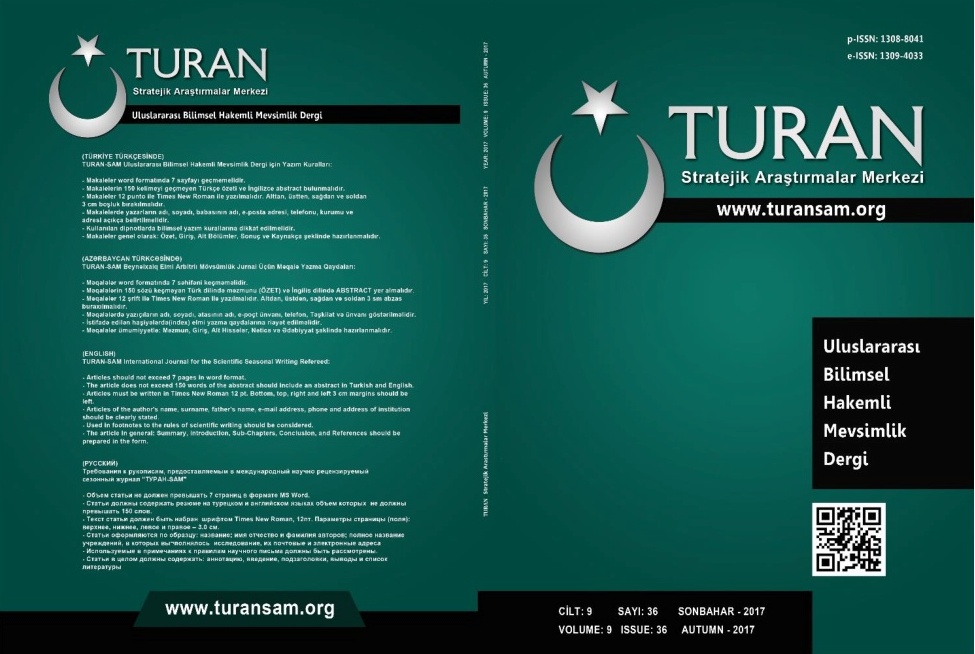Güç Geçişleri Teorisi Ve Uzun Döngüler Teorisi Çerçevesinde Uluslararası İlişkilerde Hegemonya Ve Büyük Güçler: 21. Yüzyıl İçin Bir Projeksiyon Denemesi
Hegemony and Great Power in International Relations in the Framework of Power Transition Theory and Long Cycle Theory: Projection Experiment
Author(s): Bülent ŞenerSubject(s): Recent History (1900 till today), Government/Political systems, International relations/trade, Political economy
Published by: Sage Yayınları
Keywords: Hegemony; Power Transition Theory; Long Cycle Theory; Great Powers; 21st century;
Summary/Abstract: In the literature of International Relations, although there is talked about the existence of various theories and approaches which are already analogous to each other and resemble to each other in relation to the more and more debated hegemony phenomenon, it seems that basically two perspectives are dominant According to the first of these, hegemony is a phenomenon that can be explained by the fact that hegemonic powers similar to each other in a sequence of similarity, and hegemony in the historical process pass from one force to another, based on military, economic and political power on a scale extending to dominance (neo-realist perspective); hegemony is, as a specific concept, a form of sovereignty that reproduces the hierarchical and unequal structure of the intergovernmental system through more complex mechanisms than dominance (Neo-Gramscian perspective). In this study, based on the Neo-realist perspective, arguing that the hegemonic sequence in the international system emerged on the basis of “power transitions” (military, economic and political) and historical “long cycles” corresponding to the phases of “rising”, “peak”, “interrogation” and “decline”, the phenomenon of hegemony has been dealt with on the basis of A. F. Kenneth Organski’s “Power Transition Theory” and George Modelski’s “Long Cycle Theory”. In this framework, the relationship between the great powers and hegemony in international relations was analyzed within a historical perspective, and then a projection experiment for the 21st century was tried to be realized by combining both theories in terms of existing and potential great powers.
Journal: TURAN-SAM
- Issue Year: 9/2017
- Issue No: 36
- Page Range: 456-469
- Page Count: 14
- Language: Turkish

